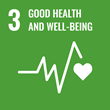Project information
Peptide Killers of Bacteria
(PeptideKillers)

- Project Identification
- 101001470
- Project Period
- 1/2022 - 12/2026
- Investor / Pogramme / Project type
-
European Union
- Horizon 2020
- ERC (Excellent Science)
- MU Faculty or unit
- Central European Institute of Technology
Antibiotic-resistant bacteria cause more than 700 000 deaths per year, and the forecast is 10 million per year in 2050. Moreover, emerging strains of bacteria resistant to all available antibiotics may lead to a global post-antibiotic era. Because of this threat, the WHO and the UN are encouraging the research and development of new treatments. The aim of this proposal is to design new peptides that selectively target and disrupt the membranes of pathogens but not those of human cells. To obtain such peptides, we will develop an innovative coarse-grained model of membranes and an original growth method, which will enable us to establish the relationship between peptide sequence motifs and their affinity to membranes with specific lipid compositions. Moreover, we will determine the critical peptide properties required for membrane disruption via the formation of transmembrane pores and spontaneous peptide translocation across membranes by devising new collective variables capturing these processes. Our computational advances will be complemented by experimental verification from peptide-membrane affinity measurements plus leakage and flip-flop fluorescence assays assessing membrane disruption. The most effective peptides will be evaluated for antimicrobial activity and human cell toxicity using growth inhibition and hemolytic assays, respectively. We will investigate mixtures of peptides for their synergistic increase in antimicrobial activity, and we will uncover the molecular mechanism of their synergism. The peptide behaviour will be quantified under equilibrium and more biologically relevant non-equilibrium conditions. The methods and knowledge obtained within this project will not only enable us to determine new peptides selectively killing bacteria, but will also enable the development of peptides targeted against membranes of enveloped viruses, cancer cells, or even cellular organelles with potential application as sensors, biomarkers, or therapeutics.
Sustainable Development Goals
Masaryk University is committed to the UN Sustainable Development Goals, which aim to improve the conditions and quality of life on our planet by 2030.
Publications
Total number of publications: 15
2025
-
Enhanced diffusion through multivalency
SOFT MATTER, year: 2025, volume: 21, edition: 179, DOI
-
Split Membrane: A New Model to Accelerate All-Atom MD Simulation of Phospholipid Bilayers
Journal of Chemical Information and Modeling, year: 2025, DOI
2024
-
Amphipathic Helices Can Sense Both Positive and Negative Curvatures of Lipid Membranes
Journal of physical chemistry letters, year: 2024, volume: 15, edition: 1, DOI
-
Computational Design of Pore-Forming Peptides with Potent Antimicrobial and Anticancer Activities
Journal of Medicinal Chemistry, year: 2024, volume: 67, edition: 16, DOI
-
Insertases scramble lipids: Molecular simulations of MTCH2
Structure, year: 2024, volume: 32, edition: 4, DOI
-
Membrane Adsorption Enhances Translocation of Antimicrobial Peptide Buforin 2
Journal of Physical Chemistry B, year: 2024, volume: 128, edition: 35, DOI
-
Nanoparticle induced fusion of lipid membranes
Nanoscale, year: 2024, volume: 16, edition: 21, DOI
-
Optimizing properties of translocation-enhancing transmembrane proteins
Biophysical Journal, year: 2024, volume: 123, edition: 10, DOI
-
Pathways to a Shiny Future: Building the Foundation for Computational Physical Chemistry and Biophysics in 2050
ACS PHYSICAL CHEMISTRY AU, year: 2024, volume: 4, edition: 4, DOI
-
Peptide translocation across asymmetric phospholipid membranes
Biophysical Journal, year: 2024, volume: 123, edition: 6, DOI
